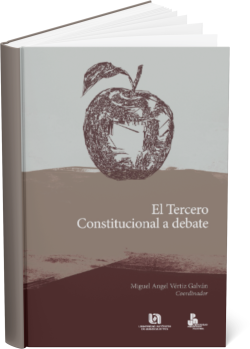THE CONSTITUTIONAL THIRD PARTY UNDER DEBATE
Synopsis
Secular, free, compulsory, comprehensive, scientific, democratic, nationalist, and quality education, as values for public education that have been incorporated and evolved over time, have given meaning and direction to government action for much of the century since the Mexican Constitution of 1917 was enacted; however, they still seem distant and insufficient to configure the educational project of future Mexico. Therefore, the debate on the right to education, although it has been present among specialists and academics for several decades, seems more relevant today, in the face of the difficulties and controversies that the 2013 education reform has faced.
The centenary of Article 3 of the Constitution is a symbolic framework that provides the opportunity to compile the current state of the debate, which has been achieved thanks to the collaboration between the National Pedagogical University, the Latin American Faculty of Social Sciences-Mexico (FLACSO) and the Education Commission of the Senate of the Republic, 63rd Legislature, which also opens up the possibility for permanent reflection on the challenges that this important human right will have to face in the coming years.
To provide a fair reflection of the national debate, plurality was established as one of the main objectives of this work. The contributions included were developed by their authors, in response to a call from the National Pedagogical University and the Education Commission of the Senate of the Republic, 63rd Legislature, seeking that anyone interested in the subject who had something to contribute to the debate could do so, always within a framework of tolerance for the right of others to dissent, a condition that the participating authors showed in a high example of capacity for dialogue and debate among peers, where totalizing positions gave way to critical reflection.
Chapters
-
Part IEducational reforms
-
Introduction
-
Educational quality and the generations of constitutional reform
-
Institutional alignment and adaptation in education reform
-
How to guarantee the right to receive education?
-
Constitutional reforms and educational policies: “trajectories of dependency”
-
From “secular education” to “quality as a right”
-
Article Three today: rights and guarantees
-
Challenge for local governments: fulfilling their responsibilities
-
Education: experience of enforceability in Mexico City
-
Human rights education for the elderly
-
Rethinking the Constitutional Third Party for the 21st Century
-
Constitutional evolution of the right to education
-
Part IIConstitutional principles
-
Introduction
-
Article Three: pedagogical axiology for democracy
-
Article 3: evolution and underlying concepts (1934-2016)
-
Historical summary of the modifications to the Third Constitutional Amendment
-
Education, secularism and religious freedom: citizens-believers borderline
-
Educational secularism and the Constituent Assembly
-
The State, compulsory education and the right to education
-
Compulsory and quality education at the upper middle school level
-
Freedom of education in the Constituent Debate
-
Constitutional principles of the right to education
-
Chronology of reforms to Article 3 (1917-2016)
-
Part IIIEducational challenges
-
Introduction
-
Quality literacy as a constitutional right
-
The challenge of access to higher education
-
The right to education: returning migrant minors
-
Indigenous rights: culturally and linguistically relevant education
-
Environmental education in Mexico
-
Social participation in education: a collective right
-
Children's participation in their education
-
The Third Constitutional Article from a postmodern perspective

Downloads
Published
Series
Categories
License

This work is licensed under a Creative Commons Attribution-ShareAlike 4.0 International License.













